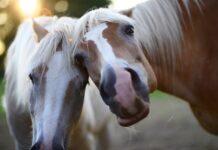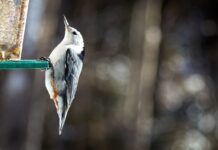Leaning against my overworked antique tractor, I could smell the freshly cut grass and feel heat radiating off the engine. It was the end of July, and I just finished brush hogging a 6-acre field for a friend of mine down the road.
I parked the tractor in the shade, and we quickly began discussing and comparing our homesteads. We talked about livestock, fencing, water and even alternative energy. It did not take long before the discussion was permeated by the recent bank closures and interest rate hikes. After reviewing all the costs we put into our homesteads, he asked, “What is your cash crop?”
It usually doesn’t take me long to answer a question, contrary to what my wife would say. I like to think that I just give short answers with very thorough, detailed and comprehensive explanations for my answers, reasoning and rationale. Sometimes I may even belabor a point because it is so important to me, as most answers seem to be.
My wife says that I just can’t shut my mouth. But this one question really puzzled me for a minute.
After investing tens of thousands of dollars in everything from fencing to waterlines and spending countless hours on endless failures, the answer is simple. My cash crop is knowledge. I did not grow up on a farm. Living in a trailer park as a kid, the only agronomy I was exposed to was in closets with heat lamps.
Modern agriculture is very big, efficient and highly specialized. I produce less corn than a combine spills on the ground during harvest, yet it provides my family with fresh sweet corn and a few jars of canned corn to store for winter.
While corn requires a ton of nitrogen, we do not use fertilizers. Instead, we grow our corn next to the hen house where we have a surplus of nitrogen-rich manure to spread throughout the year. Moving the corn next to the hen house was the difference between a successful crop this year and the half-developed ears that we pretended to harvest last year. The cows loved the stalks and unfortunately for us, but fortunately for them, we managed to grow lots of stalks and only stalks.
This knowledge and experience gained through the many failures has not defined who I am, but refined who I am. In “Farmer Boy,” by Laura Ingalls Wilder, Almanzo’s father said, “A farmer depends on himself, and the land and the weather. If you’re a farmer, you raise what you eat, you raise what you wear and you keep warm with wood out of your own timber. You work hard, but you work as you please, and no man can tell you to go or come. You’ll be free and independent, Son, on a farm.”
Modern agriculture currently feeds the world, but it doesn’t feed my soul, like bottle feeding a calf, harvesting tomatoes with my kids to make into soup or rendering lard and mixing with lye to produce my own soap. Some days it is therapeutic, some days it is daunting, and others it’s tireless and downright exhausting.
I feel something special when I raise it and nurture it on my property. My potatoes and carrots do not look as nice as the grocery stores, but what I lose in the agricultural beauty pageant, I gain in flavor and independence.














I really enjoyed reading this article!
Very well stated, Erik. Keep writing. You are a voice that needs to be heard!
Dr. Bing Henderson
Shepherd’s Bridge Farm
Very insightful. Great article!